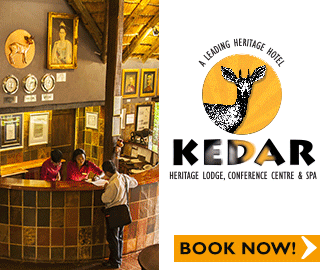
The Zulus – Africa’s Warriors & South Africa Largest Ethnic Group
BY BRUCE GERMAINE 26 FEB, 2015 01:23
The mention of the word Zulu brings a romantic notion of brave African warriors and beautiful maidens to mind, yet in today’s modern South African and African society, the Zulu nation is by far the largest ethnic group with about 20 -22 million people.
Zulu cultural traditions have remained steadfast and strong and although having been influenced by Western culture, Zulu people have a balanced lifestyle between leading a modern way of life while maintaining essential traditional cultural facets."
"
Commonly known as a Sangoma or a traditional healer, it is a person who has realized a calling and has trained many years in the arts of divination according to traditional methods as handed down throughout the centuries, even to this day. They play a very important role in the daily life of a Zulu person, irrespective of whether that person is educated or not. It is accepted that all negative occurrences, including death, can be the result of evil sorcery or offended spirits. Misfortune or bad luck is not ever seen as the result of natural causes.
In such cases and even in day-to-day living, appeasing the ancestors for the sake of protection, good health and happiness happens in the form of rituals, animal sacrifice or the diligent taking of concoctions of herbs and plants as prepared by the healer.
Zulu cultural traditions have remained steadfast and strong and although having been influenced by Western culture, Zulu people have a balanced lifestyle between leading a modern way of life while maintaining essential traditional cultural facets.
The use of cattle, as in most of Africa, has remained a cultural source both in terms showing wealth and stature among Zulus, and is still used as a value when families negotiate the custom of paying lobola – the price of the bride that the bridegroom’s family must pay to marry his chosen partner.
Zulu beadwork is internationally renowned for its intricate and colourful appearance presenting beautiful colour combinations and patterns. More than that, beadwork is also used as a means of communication between men and women genders, conveying messages of both courtship and warnings. It is a feminine craft and relates directly in attracting a mate and for purposes of marriage. Men wear the beadwork to show their romantic involvement with a woman that they are courting.
Zulu singing is extremely special and highly regarded, and as in the rest of Africa, it is the catalyst to communicate emotions and situations which cannot be explained by talking. Zulu music incorporates rhythm, melody, and harmony — especially the harmony being most dominant and is known as "isigubudu" (which can be translated as converging horns on a beast, with tips touching the animal, a spiraling inward that reflects inner feelings).
A Zulu man and his wives. In today’s society, Zulu women still value and great take pride in caring for children and the elderly. In rural areas a childless woman is frowned upon, and she may lose the status associated with being a wife.
Commonly known as a Sangoma or a traditional healer, it is a person who has realized a calling and has trained many years in the arts of divination according to traditional methods as handed down throughout the centuries, even to this day.

Zulu music, specifically the capella singing style of Isicathamiya became more famous and internationally exposed when white musicians such as Paul Simon teamed up with famous Zulu music singing choir Ladysmith Black Mambazo who proceed to win numerous Grammy awards and played a very important in taking Zulu singing to the rest of the world . Isicathamiya focuses on achieving a harmonious blend between the voices and to the style's tightly-choreographed dance moves that keep the singers on their toes. Traditionally they are all male and date to the turn of the twentieth century when numerous young men left the home to search for work in the big cities.
In today’s society, Zulu women still value and great take pride in caring for children and the elderly. In rural areas a childless woman is frowned upon, and she may lose the status associated with being a wife although in urban areas this may vary as Zulu traditions have become mixed with Western attitudes.
Contrary to other societies elderly people are never put into old age homes and this is considered highly unnatural and improper with the duty of their caretaking falling upon daughters-in-law and grandchildren. From an early age it is expected that the women do all of the cooking at mealtimes, to such an extent that a Zulu man would often rather go hungry than cook for himself.
According to Professor LC Posthumus at the department of African Languages at the University of Johannesburg, the Zulu language is well established academically with it being taught in schools and universities in Southern Africa and some other parts of the world especially America. It is unique in that it has no variations in dialect. He says that over the last seven years, the university’s African languages department has grown from an initial intake of 500 students to a current intake of 4000. This is also partly due to a strong push from the South African Department on Education to promote African languages on all levels.
In the bigger picture, the Zulu language has transcended many boundaries, both geographical and on many other levels by laying claim to its own unique opera “Princess Magogo”. Composed by Mzilikazi Khumalo and numerous international premieres in Europe and the United States already, the over 60 member performance enthralled audiences both in South Africa and globally.
The legacy of a proud people live on, from the remnants of great leaders such as Shaka who conquered many tribes into what has become a formidable nation today while maintaining a vibrant monarchy.
The legacy of a proud people live on, from the remnants of great leaders such as Shaka who conquered many tribes into what has become a formidable nation today while maintaining a vibrant monarchy."
"
Zulu dancers - Zulu singing is extremely special and highly regarded, and as in the rest of Africa, it is the catalyst to communicate emotions and situations which cannot be explained by talking.

Looking back at a brief history of how the Zulu nation came into being long ago, they lived as isolated and sometime nomadic family groups. By the late 18th century, political consolidation and a transformation to a more organized form among groups took place resulting in a more cohesive nation, albeit with some force when needed by compelling chiefdoms to swear and support to Zulu chiefs.
Military conquest was greatly valued and used as a means to garner support and unite all warring groups under one powerful force Zulu nation, with a then powerful King Shaka ruling from 1816 to 1828, only to be assassinated by his brothers. Within those twelve years, Shaka had, without a doubt, forged one of the mightiest empires the African continent has ever known.
What resulted then among the descendants of Shaka’s legacy was treachery and deceipt and death in the form of countless battles between the Boers and Zulus, the British and Zulus, and even Zulus and Zulus.
Today the Zulu are the largest South African ethnic group who live mainly in the province of KwaZulu-Natal, in South Africa. Their spoken and written language is isiZulu, and is part of the Nguni subgroup and by far the most dominant language spoken by South Africans among the eleven official languages.
The four major ethnic divisions among Black South Africans are the Nguni, Sotho, Shangaan-Tsonga and Venda. The Nguni represent nearly two thirds of South Africa's Black population.
Archaeological evidence shows that the forefathers that were the ancestors of the Nguni migrated down from East Africa as early as the eleventh century.
The word Zulu means "Sky" and according to oral history, Zulu was the name of the ancestor who founded the Zulu royal line in about 1670. Today it is estimated that there are more than 45 million South Africans, and the Zulu people make up about approximately 22% of this number with the largest urban concentration of Zulu people being in the Gauteng Province, and in the corridor of between the east coast of Pietermaritzburg and Durban. The largest rural concentration of Zulu people is in the Kwa-Zulu Natal province of South Africa.
The Zulu nation in modern South Africa enjoys a vibrant monarchy headed by the current reigning King Goodwill Zwelithini kaBhekuzulu (born 14 July 1948 at Nongoma). Hailing from a long list of predecessors, he became the 8th monarch in 1971 after the death of his father King Cyprian Bhekuzulu kaSolomon.
Since 1994 and the dawn of a new democracy, the new South African constitution makes the role of the Zulu King largely ceremonial, and it is incumbent upon him to act on the official advice of the provincial premier or primary representative of the ruling party in KwaZulu Natal.
As the constitutional monarch of the kingdom of KwaZulu-Natal province, he is head of the Ubukhosi, the state-recognized institution of Traditional Leadership that consists of local chiefs.
Traditional Leaders, in the past, were neither consulted nor involved in the process of formulating policies in government that have a direct bearing on their day to day activities even though the institution of Ubukhosi has been in existence from time immemorial and has survived many hardships under past colonial regimes. But this is changing and much lobbying has taken place in recent years to incorporate the traditional values and beliefs of ethnic groups within the law.









